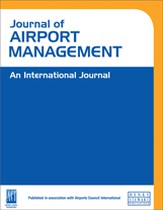Designing terminals that offer the flexibility to adapt quickly and cost-effectively to evolving processes
Abstract
This paper looks at the use of a public private partnership (PPP or P3) structure to enable foreign investment to develop US$273 m of new facilities in a highly collaborative deal structure. The selected P3 partner was required to ensure that the government’s requirements and mandatory project features would be collaboratively formulated, developed and created as a balanced project between Bermuda’s public policy requirements and international investor expectations and requirements. Prior to presenting the scheme to lenders, stakeholder collaboration produced a scope that met the expectations of all parties; one of the real benefits of a negotiated concession, in particular where financing is marginal. With the priority of cutting unnecessary expenditure there was a constant challenge to the scale of the facilities and the operational performance. As the forecast growth was relatively modest it was agreed that the facilities should be sized and future proofed for 10 years after opening to avoid disruption during the early years of operation. Opportunities for increased collaborative decision making were revealed throughout the engagement process. Future airport development projects can learn from some of the missed opportunities such as further alignment on the cost/benefit model that this type of early collaboration during the project definition process could produce.
The full article is available to subscribers to the journal.
Author's Biography
Jacqueline Horsfield acted as a project coordinator at the Department of Airport Operations for Bermuda Airport Redevelopment and a member of the Government Airport Redevelopment team from 2014–17. She now serves as Project Manager, Bermuda Government Office of Project Management and Procurement. Thirty years in hospitality and the third sector has provided a firm footing in resource management and contract negotiations. Jacqueline’s aviation experience includes master planning; eco master plan; organisation of the Airport Council International 2010 World/LAC Conference in Bermuda; CUSS and IT solutions; regulatory and legislative changes including arrivals duty free; terminal design; and funding for airport redevelopment. Jacqueline is a graduate of the University of Surrey School of Business; Hospitality Management, and a Member of Royal Institution of Chartered Surveyors (MRICS [Commercial Property]) and International Airport Professional designation (IAP).
David Stewart has over 30 years’ experience in airport master planning, terminal area planning and design on major international airport projects in North America, Asia, Australia, the Middle East and Europe. He has been responsible for the management of a wide range of airport projects from specialised studies for component infrastructure to worldclass airport ‘mega-projects’. As Head of Airport Development for IATA, David is responsible for the Association’s interface with airports worldwide as they undertake major expansion and ‘green field’ developments. IATA’s main activities include professional contributions to major airport projects, ensuring that the aviation industry receives value for money for the investments being made in airport infrastructure and that the airline community and airports’ business development strategies are aligned and mutually supportive. David’s familiarity with both planning and operation of airports from the perspective of the airline community, the airport owner/operator and as a professional consultant has provided him with a unique perspective on airport development as it influences and potentially enhances the ‘passenger journey’.
Chris Chalk is Mott MacDonald’s Group Practice Leader for aviation with reputation for cutting edge finance, economics, planning and design of airports around the world. Chris led the traffic, commercial and technical advisory roles for Aecon Concessions for the Bermuda Airport Concession. His recent experience ranges from lead roles at Hong Kong, Heathrow, St Petersburg, Istanbul, Quito, Male, Kilimanjaro and South African airports. With experience advising on all sides of aviation deals for 20 years, Chris is well acquainted with the range of risks and opportunities that the sector presents. He is currently involved in a range of projects including the new Istanbul Airport. Chris is currently Vice-Chairman of the British Aviation Group, the aviation member of the Institution of Civil Engineers Transport Expert Panel and on the Airports Council International World Business Partners Advisory Board.
Darija K. Scott is a practicing architect and principal of SCOTT Associates, and has managed P3 airport projects in Canada, USA and internationally. Over her 35 year career as an aviation specialist, she has provided her expertise to the world’s largest construction and development companies, governments and financial institutions. She is widely recognised for her insight into financially sound and operationally efficient airport design. For seven years, she was on the Board of Infrastructure Ontario, the government agency responsible for delivering P3 projects using alternative financing methods, ranging from US$50 million to US$1.3 billion.
